Quality Assurance Section
- Home
- Lab Sections
- Quality Assurance Section
Laboratory Quality Assurance (QA) is an internal and external check system that is performed by experts in the field. In many cases, QA is only applicable to the product and process, but an effective and quality assurance program must evaluate all stages of QC planning and steps.
Quality Assurance should not be confused with Quality Control. Quality control is about the quality of service. Quality assurance is a system of controls based on the documentation within the system so you never miss your client. In other words, quality assurance eliminates the possibility of errors that cause harm to the laboratory and the client.
Quality assurance includes:
- Pre-test step
- Standardize the test method
- Internal Quality Control
- External Control
- Post-test step
- Organize
The most important tasks of this documentation are policies, systems, programs, and procedures for implementing laboratory guidelines. Obviously, all of these activities are aimed at providing quality and promoting it in the context of providing control tests. The use of TQM (TOTAL QUALITY MANAGEMENT) in the laboratory enables regular and ongoing workflows to be reviewed and subsequently identified existing errors and to prevent possible errors in the future.
To this end, and to ensure that the results are acceptable, the Quality Assurance program will be implemented in a fully qualified medical and transplant diagnostic laboratory. In this regard, the Payvand Clinical & Specialty Laboratory Quality Assurance Unit has been able to deploy an integrated management system and fully implement the requirements of ISO 15189 and ISO 9001; 2015 as well as ISO 10002; 2014 customer complaints and satisfaction standard.
It should be noted that due to the workload and variety of technical activities in medical laboratories, it is not possible to claim that laboratory errors can be reduced to zero, and according to international standards, error coefficients are allowed for laboratories, but using various systems and continuous quality control can minimize the likelihood of these errors occurring.
Important indicators of quality assurance include:
- Implementation of quality management system in accordance with national and ISO standards (10002 + ISO 9001) and ISO 15189
- Membership in Quality Control System of Iranian Association of Laboratory Sciences
- Continuous participation in internal and external quality control programs
- Employees with at least a bachelor’s degree in related disciplines and with the necessary knowledge and experience in laboratory departments
- Evaluating the quality of molecular specialized experiments with reputable European companies
- Applying world-class equipment and technology
Devices and Equipment
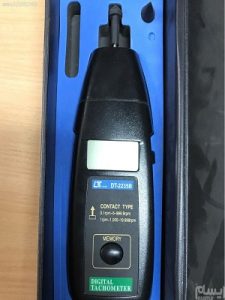
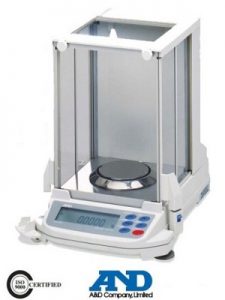




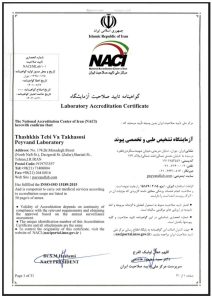
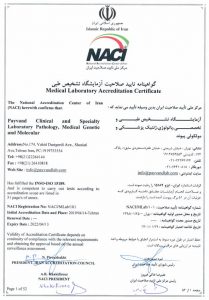
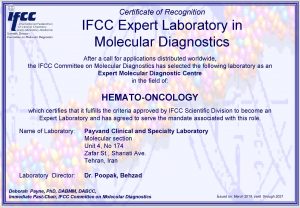
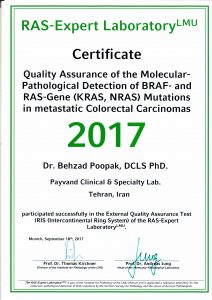
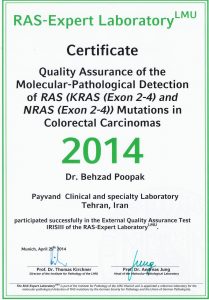
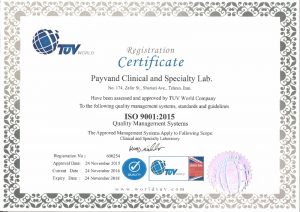
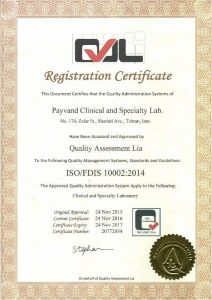

Follow us in